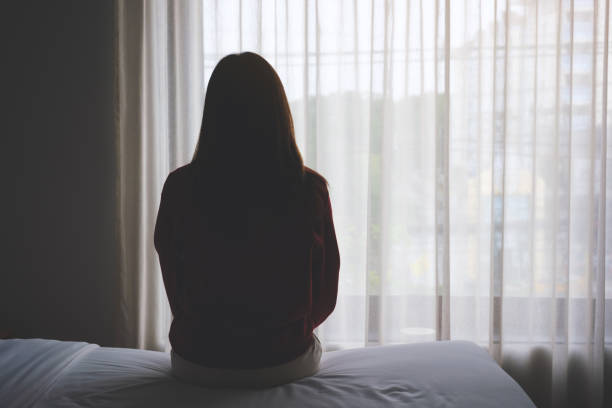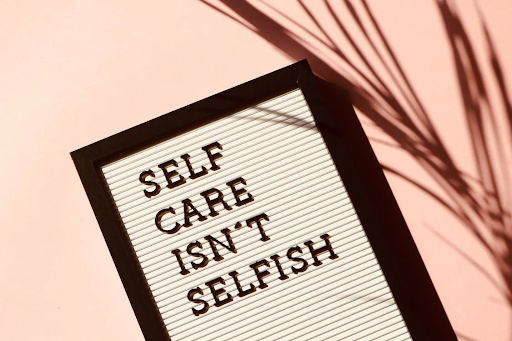9 Tips To Create A Calm Bedroom Space For People With Depression
Bedrooms symbolize both an end and a beginning. The end of the day, and can be a place where people first wake up. For people with depression, this is the most important place for them but because of their condition, it is often hard to maintain its cleanliness. So here are some tips to create a bedroom space that adds to your peaceful day:
1. Limit clutter in your bedroom
This is especially important for people with depression, who are often overwhelmed by the amount of stuff they have around them. This is why if you suffer from depression, you should limit clutter in your bedroom because clutter creates stress.
It's not just the physical burden of having too much stuff, it also creates mental pressure. You'll feel like you're constantly cleaning up or running out of storage space.
Clutter also makes it harder for you to take care of yourself properly. If you have a messy room, it's much harder to keep up with self-care tasks such as getting dressed and putting on makeup in the morning or organizing medications at night. It's also harder to sleep well if your bedroom is too cluttered because it takes longer to fall asleep when there are distractions in sight.
Hence if you want to create a calm bedroom space, start by getting rid of anything that doesn't serve a purpose in your room such as old clothes, books that don't interest you anymore, toys that your kids don't play with anymore (but you haven't thrown away yet), etc.
If it has been sitting in your closet for more than a month without being used at all and especially if it makes you feel bad when you see it then it's probably time to get rid of it!
2. Add plants to your space for natural air purification and beauty
People with depression have a heightened sensitivity to chemicals in the air, and exposure to toxic chemicals can make their symptoms worse. You might've heard that plants are good for your health. While most of us know that plants can help purify the air in our homes, many of us don't realize just how important it is to have plants around when you're feeling down.
Plants naturally cleanse the air we breathe and absorb CO2, so they are an excellent way to improve indoor air quality. They also purify water, which means they can help eliminate other pollutants as well. The best part? They're beautiful!
As a matter of fact, the natural beauty of plants has been proven to help people with depression by increasing their serotonin levels and reducing stress through the release of negative ions. There's also evidence that people who are exposed to plants on a regular basis tend to be more positive, optimistic people overall. So if you're struggling with depression or anxiety, adding plants to your bedroom space could be a great way to combat those feelings.
3. Add comfortable lighting for relaxation rather than ambiance
Lighting can play a huge role in creating a calm bedroom space for people with depression because it helps them create an environment that feels safe, secure, and relaxing.
When you're feeling anxious and stressed out, it can be hard to imagine being able to relax in your own bedroom especially if you're struggling with depression or anxiety disorders. The bedroom is often one of the first places we associate with rest and relaxation. Unfortunately, there are many factors that make this difficult for people suffering from mental health issues.
So pick out comfortable lighting for relaxation rather than ambiance. You want something soft and warm that doesn't produce harsh shadows or bright spots on the walls. You also want something that produces enough light so you can see what you're doing without straining yourself or causing eye strain.
Nevertheless, it still depends on your preferences, whatever makes you feel comfortable and safe go and get that lighting!
4. Add the best mattress
The best mattress should be firm enough to support the spine but soft enough to provide pressure relief that can help with back pain. The right mattress will also provide proper support for the head, neck and shoulders, which are all important parts of your body when it comes to sleeping soundly through the night.
A good mattress will help relieve stress on your body so that you can relax and get some much needed rest. However, it is important to remember that there are many types of mattresses available today, including memory foam, latex, and spring mattresses.
But why does this matter? Well, people with depression often have trouble sleeping, which makes it harder for them to get through the day without feeling exhausted or irritable (and sometimes even angry). This is because their body isn't getting enough restorative sleep or at least not enough quality restorative sleep. So it's no wonder they feel tired or stressed all day long!
Hence if you have depression, consider investing in a new mattress! You'll notice an improvement almost immediately!
5. Opaque window coverings
Opaque window coverings keep out light, which is important because bright light can disrupt sleep patterns, making it harder to fall asleep at night and wake up in the morning.
People with depression often struggle with sleep problems. They may have trouble getting to sleep or staying asleep, or they may wake up too early and not be able to get back to sleep again. They are also sensitive to noise which adds to the factor of sleep deprivation.
The other good news is that opaque window coverings also help keep out noise, which can be very helpful if you live in an apartment building or near a busy street. In addition, they reduce glare from sunlight on computer screens and other electronics so that you don't feel like you're staring into a spotlight when you're trying to work or relax after work.
6. Make sure you have enough pillows
Pillows are great for creating soft surfaces to lay on. Whether you're laying down or sitting up, pillows can help create a comfortable environment for resting and sleeping. They also help keep your head elevated so that blood flow is less likely to be interrupted while sleeping upright, which keeps you from waking up with neck pain or headaches.
On top of that, if you have trouble falling asleep because you're tossing and turning all night long, pillows can help keep you in one position so that you can sleep more soundly through the night without waking up several times during the course of the night.
This is because pillows make things feel cozy and warm which is something that everyone needs when they're feeling depressed! The softness of these things can also make you feel that you are not alone and no matter how hard your condition is things will get better.
7. Quiet ceiling fan
The sound of a ceiling fan is often one of the most relaxing sounds in the world. Whether you're at home or out and about, the sound of a fan can create an immediate sense of calm and relaxation.
With this in mind, it's not hard to understand why many people with depression find that having a quiet ceiling fan in their bedroom can help them relax and fall asleep more easily. When you have depression, it can be difficult to sleep or even get comfortable enough to fall asleep. Having something like a quiet ceiling fan in your bedroom can help alleviate some of these problems by providing white noise that helps mask other sounds that might otherwise keep you awake at night.
The downside is that most fans are quite loud when they're turned on at high speed. So if you don't have one already, consider getting one that is made specifically for people who have trouble sleeping due to noise coming from outside. This will ensure that you get all of the benefits without any extra noise pollution from within your home!
8. Remove technology
Technology can be a great thing. It can help us stay in touch with people across the world and keep track of our busy schedules. But there are times when it doesn't feel so great.
The reason that removing technology from your bedroom is important is because of the way technology affects us, both consciously and subconsciously.
When we are exposed to technology for extended periods of time, it can have a negative impact on our moods. This is because the light from screens can actually trick our brains into thinking that it’s daytime even when it’s not. As a result, we feel more alert and awake than we normally would be.
Aside from that, studies have shown that people who use their phones before bedtime have poorer sleep quality than those who don't use their phones at night at all. Which could lead to irritability and other negative emotions however by removing technology from your bedroom space, you can help prevent these feelings from occurring in the first place!
9. Calming scents
There is a lot to be said for the power of scent. It can instantly transport you to a place or time, it can make you feel good, and it can even help you sleep better at night.
Calming scents are often used in aromatherapy (the use of essential oils), which is a form of alternative medicine that uses plant extracts to treat various health conditions. Essential oils have been used for centuries by Eastern cultures as part of their healing practices due to their ability to help with everything from headaches to anxiety relief. They work by stimulating our brain receptors so we feel calmer and more relaxed almost instantly after inhaling them. These same scents can also help calm down an overactive mind so we can drift off into a peaceful slumber more easily than we could otherwise.
With this, calming scents are a great way to create a calming bedroom space for people with depression because they help them relax and fall asleep easier. They also help reduce their anxiety levels and increase the overall quality of their lives by helping them feel more relaxed and less stressed during the day. The good news is that there are tremendous amounts of calming scents to choose from, so choose one or two that is according to your preferred scent and will help you to deal with depression.
Most people who struggle with mental health issues need to practice mindfulness, which can be an integral part of the healing process. We hope these room suggestions will help you create a space that will be effective in promoting calm and mindfulness in your life!
For more helpful and informative insights, visit here.





